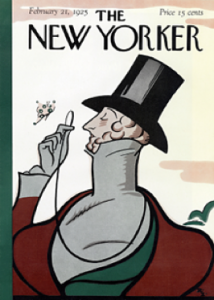
College Applications: A Step-by-Step Guide
MEK’s Step-by-Step Guide to College Applications
So you’re starting to think about your college applications and want to get accepted into your dream school but might not know where to start…
As senior year rolls around, applying to college may seem like a daunting task. But don’t worry – it’s really not as difficult or stressful as you think.
As long as you avoid these 5 common mistakes, you’ll be sure to have a stellar application that will stand out to college admissions officers.
1. Writing a Generic Essay
Your common app essay should be anything BUT common.
Discuss a life-changing experience or a topic you’re genuinely passionate about. Don’t be afraid to share a personal struggle or perhaps even a creative story. The bottom line: be yourself, and be real. After all, that’s what makes you unique from the tens of thousands of others with similar grades and test scores who are applying to the same school.
Tons of students write generic and self-aggrandizing essays about winning an award or an extracurricular they want to show off to admissions committees. Don’t blend in with the crowd. Be different, and feel free to take risks. This is your one shot, so why not make the most of it?
2. Forgetting Deadlines, Testing Policies, and Other Requirements
Of course, this seems obvious. But in a day and age where many students apply to over 15 colleges, it’s probably harder than you think to keep track of everything.
First, make sure to know the application deadlines of each school to which you’re applying. Also decide on which schools you intend to apply early to (more on that in a bit) and mark your calendar accordingly.
Here are a few deadlines for popular colleges from the 2019/2020 admissions cycle:
- ~11/1: EA/REA/ED for Ivies and most Top 20 schools
- ~11/30 University of California (all 9 campuses)
- ~1/1: RD for Ivies and most Top 20 schools
(Note that deadlines may change marginally from year-to-year, so be always sure to verify.)
Different schools have different policies for reporting standardized test scores. Some allow you to self-report (on your Common App), while others require official scores to be sent via the testing agency. So be sure to check the website of each college you’re applying to for its specific testing policy.
AND DON’T DO SO LAST MINUTE! The College Board typically takes a week to send over score reports. If you find out the day before the deadline that a school requires official test scores, you’ll be too late to send them in on time!
Pro tip: Don’t go at it alone! Before submitting your first few applications, arrange a meeting with your guidance counselor to make sure all required transcripts, recommendations letters, and other documents are sent in by the deadline.
This whole process might seem a bit overwhelming at first, but you’ll get the hang of it after several applications, and applying to the rest of the colleges on your list will be a breeze!
3. Waiting Until the Last Minute
It’s a good idea to get started before the end of junior year! If you’ve already finished all your standardized testing by then, you’ll have a good idea of where you stand.
Research different schools and determine which ones best align with your interests, preferences, and future goals. Create your college list and start visiting those schools over the summer. And spend time crafting a well thought-out Common App essay and revising until you see fit.
Don’t wait until winter break of senior year to finish everything! Under high pressure and a narrow time constraint, you might not be able to think everything through and compose the best essay possible. You also won’t have much time to edit, proofread, or ask for others to look over your writing. Remember: essays can make or break an application, so don’t just rush through them!
4. Not Applying Early
Some students don’t realize that many colleges allow you to apply well before the regular deadline and receive a decision at an earlier date. So take advantage of this opportunity! If you’ve already identified your dream school, consider applying in the early round.
Colleges typically offer one of three early application policies: Early Action (EA), Restrictive Early Action (REA) policy, or Early Decision (ED).
If you don’t know what these terms mean, check out our new blog article (link) to find out the difference between EA, REA, and ED decision plans.
Benefits of Applying Early:
- Increased Acceptance Rate: Colleges reward you for identifying them as your first-choice school and submitting your application early. Applying EA/REA/ED will almost certainly increase your chance of admission! For most Ivy League schools, the early acceptance rate is nearly double that of regular decision. And in 2019, Johns Hopkins’ admitted more than 30% of ED applicants, compared to a mere 7.7% in RD. So if you have a particular dream school in mind, go for it early! Plus, you won’t have to wait as long for a decision!
- No Need For Safety Schools: Most colleges release early application decisions before January 1, the regular decision deadline for most colleges. So if you find out in mid-December that you got into at least one target school during the early round, you won’t need to waste application fees on safeties! And if you’re accepted into your first-choice school, even better! You’re all done with college applications!
5. Aiming Too Low
Most guidance counselors will tell you to pick a only certain number of safety, target, and reach schools for a maximum of 10-12 in total. While such suggestions are certainly reasonable, you don’t need to feel restricted by them! In fact, many high-achieving students fail to end up at a selective school simply because they didn’t apply to enough of them.
As long as your grades and scores are sufficient, don’t be afraid to shoot for more reach schools than recommended. Especially nowadays, with college acceptance rates declining to record lows, you should try for as many top schools as possible to increase your chance of getting into at least one.
After all, it doesn’t hurt to aim high. Applying to colleges is a once-in-a-lifetime opportunity, so don’t waste it!

The Big Takeaway
When it comes to college applications, a seemingly minor error such as not knowing the testing policy or applying RD instead of ED could mean the difference between acceptance and rejection. By avoiding these 5 critical mistakes, you’ll be ready to create a fantastic college application and increase your chance of getting into your top-choice schools.
Remember:
1. Don’t write a generic essay
2. Don’t forget deadlines, testing policies, and requirements
3. Don’t wait until the last minute
4. Apply early
5. Aim high
Writing Your College Application Essay
Your college application essay is very important. It gives college admissions officers a clearer, fuller idea of who you are as a person. This is information that they can’t get from just looking at your transcripts.
So it’s crucial your essay stands out from the crowd — in a good way!
Everyone has engaging stories to tell from their lives, and everyone can be taught how to tell these stories with the polish and confidence they deserve. Let’s find out what your stories are and make them shine!
Tips for Getting Started
Below are 3 essential tips for those students who want to start working on their college application essays early – a decision I strongly recommend.
Tip #1. Understand the Key Elements of a Strong Essay
There are two elements in common in more than 90% of the successful and compelling college essays. These two elements are:
1) an anecdote, or short story, from an applicant’s life
2) a meaningful reflection on the anecdote and/or the applicant’s personality or circumstances.
This makes sense. What we’re trying to do when we’re writing the Common App or supplemental essays is convince application committees that we’re a good fit for their student body because of some qualities or characteristics that we possess.
But we can’t just write to them saying, “Hi, I play hockey and I’m funny and I’m pretty neat! Please let me in.”
What we can do is communicate these qualities about ourselves through a short story.
Stories are the most effective tool to connect us to the experiences of strangers, and a well-written story will communicate to a reader not only that you have certain appealing characteristics, but also that you have a sharp and discerning eye for the world around you.
But stories by themselves are not enough to show that you’re a strong applicant.
We also want to show that we’re capable of reflecting honestly on our experiences and using these reflections to grow, learn, and improve. This is why we need a portion of the essay dedicated to introspection where we can talk about what this experience meant to us, how it has changed us, and how we can use it to better our lives in the future.
Tip #2. Read or Listen to Successful Stories
So to write compelling college essays, we should be sharpening two broad skill sets: storytelling and introspection.
We should, however, be wary of thinking about these skills as two entirely separate abilities or portions of an essay. The best stories deftly interweave introspection and observant storytelling together, creating a tightly crafted narrative that relays the events of the story while simultaneously reflecting your personality and your capacity to think.
For those of you starting early in thinking about this process, you have a distinct leg up because you have extra time to look at and absorb successful stories.
Below are some reading and listening suggestions for students who want to get a head start in preparing for college application essays:
The Moth Radio Hour
For those of you who hate the physical act of reading, I highly recommend The Moth Radio Hour, a storytelling podcast that compiles some of the best live storytelling from across the country.
The New Yorker – Flash Fiction
I recommend reading stories from The New Yorker, even though they have a limit on the stories you can read (pro tip: try clearing your cache and cookies once you run out of articles). They are generally of very good quality, and the Flash Fiction section of the magazine has stories that are more or less how long your essays should be.
And click here for a list of some of the most-read stories on The New Yorker, which are from as far back as 1946 and span a similarly wide range of topics and styles.
What you’ll notice about well-crafted stories is that they have an eye for detail, use vocabulary deliberately, and express the narrator’s personality.
Tip #3. Start Writing!
Once you’ve read and experienced good literature, the next step is to try to write your own stories.
You’ll probably find that you’re writing in a style that copies that of your most recently read or your favorite short story. And that’s fine!
The more you write, the more you’ll discover your own voice and personality.
The absolute best thing you can do for your writing skills is to write every day. It doesn’t have to be a journal or a diary or even about yourself (although it can). You can write little stories about what would happen if the government banned deodorant, or what might happen if aliens came to earth and thought penguins were our leaders (if you want ideas, check out this subreddit with tons of writing prompts).
Even if it doesn’t seem like it, everything that you write helps to develop your personal voice and style. The earlier and more consistently you read and write, the better you will be prepared for the essays come senior year.
What Should You Write About?
Not long ago, we shared our blog: College Application Essay: 5 Cliche Topics to Avoid. Once students try to avoid certain cliches, they often run into trouble with picking a topic. After all, students are drawn to certain topics for a reason. During your adolescence, you’re experiencing many profound situations for the first time: death, travel, poverty, hardships, defeat, and victory.
Where students go wrong is usually not in picking the topic, but in the way they decide to write about it. This is what causes admission officers to roll their eyes or – even worst – be offended or put off.
That’s why we’re sharing 3 things you should NOT include in your essay and 3 things you SHOULD include in your essay.
#1: Your Travels
DON’T write about your awesome vacation or life-changing mission trip.
Your college essay should be about you and an experience that was impactful for you. It’s very possible that a trip you went on affected you deeply, made you reconsider how you saw yourself, or taught you something valuable.
So why is this topic so mocked or hated by admission officers?
Because unfortunately, most students end up giving their reader an itinerary of their trip or the different foods they ate. This is too broad and boring. Think about when your aunt comes back from France and makes you look at 100 pictures of the Eiffel Tower or different paintings in the Louvre. Do you really feel anything other than boredom, or maybe mild interest? Likely not.
Well, it’s the same for admission officers.
No matter how you write about vacations or even mission trips, you can risk coming off as very privileged. After all, you’re traveling around having a fabulous vacation or on a mission trip where you are realizing, for the first time, that you have way more things and opportunities than most people. While the vacation may have been fun and the mission trip profound, showing that you are richer than others is not going to make an admission officer relate to you or want you at their school.
DO write about a snapshot of your travels that spurred further interests or growth.
If a particular trip really impacted you and you really want to write about it, you still can. However, you should write about it in a meaningful, unique way.
Specifically, you can avoid the “boring and privileged” problem of writing about travel by simply including an interesting “snapshot” of your experience. In other words, instead of trying to capture all two weeks of your trip, focus on a particular anecdote. This story or “snapshot” of your trip should focus on something unique and particular to YOU, rather than on the trip itself or basic ideas such as “people are different, but also the same” or “I’m much more fortunate than others.”
How does this one small experience, this slice of your life, lead to further growth or maturity for you? How did it spark or relate to a larger interest or passion that you have today?
By narrowing your topic and focusing on how the experience relates to you — your interest, growth, values — you can write a much more interesting college application essay. For more advice on how to plan your approach to essay topics, read this blog on the brainstorming process.
#2: Your Point of View
DON’T write about your political views.
Your political views may be very important to you, and may be an important part of your personal story. But similarly, admissions officers may take their own, potentially opposing views very seriously as well. It is always best to keep politics out of your essay to avoid offending any readers.
Furthermore, if you are applying to a school that is historically more conservative or liberal, and your politics are in the opposite direction, an admission officer might wonder whether you will fit in well with campus life. Ultimately, it could hurt your chances.
DO write about your leadership activities, values, or even political involvement.
You can still include a sense of how your mind works and how you view the world by describing leadership experiences, times you took initiative, or other experiences that challenged you in ways big and small.
You can make a great impression on an admission officer by writing about experiences that demonstrate your desire to solve problems that you have observed in your community, country, or world.
Even certain political involvement such as helping with a campaign or marching in a protest, can be worth writing about if you can focus more on the experience and what you learned than the actual issue.
#3: Your College Essay Conclusion
Don’t end your essay by telling the admission officer a cliché lesson.
They’re called clichés for a reason. They are overused, and using them may give the impression that you are unimaginative.
Quite simply, clichés are boring.
This can be especially challenging when you are wrapping up your college application essay. It may be tempting to want to end with a generic, moral-of-the-story conclusion, such as:
- “I now realize that I can reach whatever goal I set.”
- “Suddenly I realized that it’s okay to fail, as long as you learn along the way.”
- “It turns out that the whole time, I thought I was helping them, they were helping me.”
- “My aunt taught me to never give up, even when life is really hard.”
- “Life doesn’t always turn out the way you expect it.”
- “I learned you don’t always know what is going on in a person’s life.”
Admission officers have already learned these lessons, and they won’t be impressed that you have too.
Rather than making you seem insightful and mature, these types of cliché “lesson” conclusions, can leave an admission officer with the impression that you are shallow and dull!
DO end your essay by SHOWING an admission officer who you are or how you’ve changed.
You will want to conclude your college essay by highlighting that you are a mature, intellectually curious individual who will enhance the student bodies of the schools you are applying to.
So instead of a big cliché moral, end your essay with clear, vivid language that continues to tell a story rather than give a lesson. It’s critical to show, not tell in order to resonate with your readers.
Here are a few ways you can do this:
- Dialogue – Ending your college essay with a piece of dialogue that demonstrates how you have changed can be very powerful and engaging.
- Description – Again, show, don’t tell. Describe a scene to your reader that allows them to see the experience or growth that you’ve discussed in your essay.
- Circle back to your introduction – A far better way to show a nice finality to your college essay is to return to something you had mentioned in your introduction. In doing so, you can more clearly emphasize how you have transformed or grown.
Finally, Write as Yourself.

Regardless of what you choose to write about, the most important thing is that you write as yourself. Don’t try to be someone you’re not, because this can give the impression that you are trying too hard.
For example, don’t use overly-sophisticated words because you think they may “sound better”. This may disrupt the flow of your narrative, and again, give the wrong impression.
You want to come across as the warm, intelligent, likable person you are!
For more expert advice, check out our College Application Essay program. Expert coaches and counselors will guide you step by step through writing an amazing college essay!
Call 855-346-1410 or contact us today. We can’t wait to hear from you!








